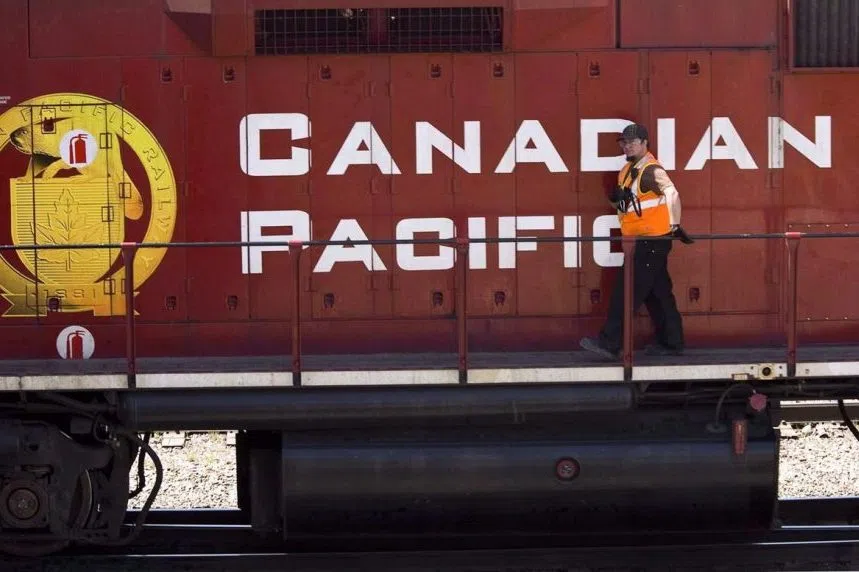A couple of deals will have impacts on Canadians, according to one business analyst.
Paul Martin pointed to CP Rail’s agreement to enter binding arbitration with its employees as good news for the Canadian economy. Rail service had been shut down since Sunday as CP Rail and the Teamsters Canada Rail Conference worked towards a new deal.
While a deal wasn’t reached, the two sides did agree to binding arbitration, meaning workers were back on the job Tuesday.
Martin said the agreement was important on the prairies, where producers are so dependent on export markets — and that means rail.
“The two sides agreeing to binding arbitration is never anyone’s first choice, but I guess if you weigh that against being legislated back and having a settlement imposed upon you, you take the lesser of the two evils which is hopefully you get an arbitrator who will at least hear your side of the story,” Martin said.
“(It’s) no surprise this ended so quickly because if it wasn’t arbitration, it was going to be legislation and both sides know that. They pushed as far as they could, they made their statements and now get on with it.”
But Martin doesn’t expect another deal to receive such a warm welcome by some.
On Tuesday, the federal Liberal and NDP parties announced they have come to a deal that will see the government remain in charge for the next three years.
The NDP promised to vote in favour of the Liberals in all non-confidence matters but, in doing so, is asking for some of its campaign promises to be met — such as universal pharmacare and dental care.
Martin said private insurance companies who offer that sort of coverage won’t welcome that with open arms.
“It’s the government stepping in and taking your business. This is the kind of stuff that the private sector does not relish, doesn’t like at all and it sends real strong signals to the world that, ‘Don’t invest in that country,’ because you never know — a government might just wake up one day and say, ‘You’re too successful. I think I’ll take you over,’ ” Martin said.
“Those kinds of things take generations to shed.”
Martin said he believes this is more than a political deal, saying there is a commercial side to it as well.
“We’re seeing that we’re not a military power and this is going to make it worse. There’s going to be less budget available to rebuild the Canadian military and make us a global contributor,” Martin said.
Martin also discussed the provincial economy and where it stands.
On Tuesday, the Saskatchewan government announced a record amount of potash production occurred in 2021.
“No surprise there. We’ve been seeing those signals for quite a while,” Martin said.
Martin said part of the reason for the strong potash sales comes from the current war in Ukraine, with Russia and Belarus being suppliers of potash but sanctions against them taking them out of the equation.
“More and more, the world is looking to Saskatchewan to fill the gap,” Martin said.
And Martin said Saskatchewan is a great place for people looking for jobs.
“We’re creating way more jobs than we have people to fill them. We’ve usually relied on immigration to fill our job shortages but COVID and the pandemic got in the way of immigration programs. Those are starting to open up again so maybe there is some light at the end of the tunnel but it is a way down the road,” Martin said.







